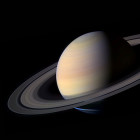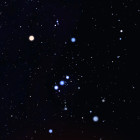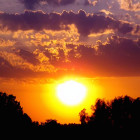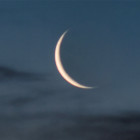10-13-17
The link to sign up for conferences will be live on Monday. Lake Center will send out a school wide email on Monday as well. Looks like conferences will be on Tuesday, Nov. 14th and Thursday, Nov. 16th.
Parent Code: ekhj9
Lake Center Dine Out Night
Lake Center Spirit Days
Halloween will be celebrated on Friday, October 27th which is another half day. October 31st will be used to celebrate a school wide celebration of being 95% referral free. All students will be able to wear their PJ's to school that day. I will send out more details about Halloween as I figure out exactly what will be going on that day besides the parade at 10:30.
This week we read about space exploration
and asked the question “How can graphics help
you learn about space?” We read an
informational text, Blasting Off to Space
Academy about a group of children who
experience the excitement of space exploration
during a space-shuttle mission simulation.
Vocabulary Words: function, delicate,
adjusted, operator, flawed, acute,
version, axis, simulate, tethered
Spelling Words: awake, feast, stray, greet, praise, disease, repeat, display, braces, thief, ashamed, sleeve, waist, beneath, sheepish, release, remain, sway, training, niece
Inferences
Our main comprehension focus for the first quarter has been and will be on inferences. The students have to be able to quote accurately from a text when drawing inferences and also be able to draw or relate from personal experiences.
Writing
We are finishing up our informational writings on planets this week before we introduce our first persuasive writing next week(hopefully).
This week was spent on multiplying and dividing decimals by whole numbers. We are getting close to finishing up our first module in math. We have 3 more lessons to get through next week and then I'm sure we will spend some time reviewing all the material from the whole module before taking the end of module assessment. Our main focus this module has been comparing decimals, rounding decimals, multiplying decimals by whole numbers, and dividing decimals by whole numbers. I would recommend having your child go back and review any past problem sets in their math section of their binder if they need any review.
I've been using mystery science this year to kind of connect together all of our science standards that need to be covered involving the solar system, moon phases, seasons, and tides. We've pretty much wrapped up our unit on the solar system. I still need to review the order of the planets with a handful of students but then we will be hitting the phases of the moon. We will stop and go into a lot of detail between the phases of the moon and how the moon affects the tides. Below is a brief description of the unit: Spaceship Earth.
Mystery 1: Day, Night, & Earth's Rotation

Why does the sun rise and set?
Mystery 2: Earth's Rotation & Time

Who set the first clock?
Mystery 6: Planets & Solar System

What are the wandering stars?
This astronomy unit helps students develop a new perspective on the world they’re standing on. They will be given evidence that the Earth beneath our feet is actually moving through space, both spinning on its axis, and traveling in a great orbit around the Sun. They will see how these movements account for the patterns we see in our sky (the paths of our Sun across the sky, the changing seasons, and the changing constellations). Accompanying us on this journey are the Moon and planets, which the students will observe have their own patterns of movement in the sky. Throughout this investigation students will engage in actual and simulated observations of the sky, and they will engage in the process of inquiry: beginning with observations, debating a range of possible causes, and reasoning to possible conclusions.









